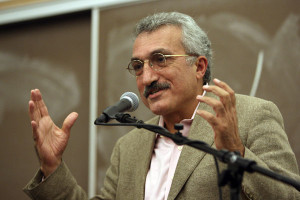“The concept of human rights is both fluid and constant,” author and Iran expert Abbas Milani explained to around 200 people in Braun Auditorium on July 24 as part of the Stanford Summer Human Rights Program.

Milani is the author of ten books on Iran, including “A Tale of Two Cities: A Persian Memoir” and a biography of Mohammad Reza Shah Pahlavi, the last shah of Iran. He is also the director of Iranian Studies at Stanford and a co-founder of the Iran Democracy Project.
According to Milani, there is increasing global understanding that certain rights are “inalienable to every human being.” However, the Iranian government continues to breach human rights by picking only certain rights to defend instead of supporting human rights in their entirety.
“Can you beat women and say ‘this is my culture’?” Milani asked.
The current Iranian Constitution states that women, Jews and Christians are worth only half of a man. It also provides no right of privacy and allows people to be arrested arbitrarily. The result is the most executions per capita of any country, ahead of even China.
“As a Chinese [citizen], Milani’s explanations made me reconsider the human rights in my own country,” said audience member Jason Mao.
According to Milani, the Iranian Revolution of 1979 has made even Iranians realize that human rights go beyond political rights; the idea of human rights as a Western concept, he argues, was concocted by “racists in the West and despots in the East.”
“The complexity of our time is that we have realized the contingency of our beliefs. Truths have become relative,” Milani said.
When asked by an audience member about the possibility of a rebellion by the growing youth — three-fifths of the Iranian population is under 30 — Milani explained the difficulty of organizing and mobilizing in Iran. He emphasized that they do not want a charismatic leader to head a rebellion.
“Heroes always fail them,” Milani said.
Hesitant to respond to questions about the United States’ impact on human rights in Iran, Milani was confident in saying that there is no military solution. He criticized the United States, specifically the electronics company Siemens, for providing the Iranian government with technology that has enabled censorship. He also pointed out the United States made a mistake giving Iran missiles during the Reagan administration in return for hostages.
“The United States can’t bring democracy to Iran,” Milani said. “Iranian people, and only Iranian people, can.”
